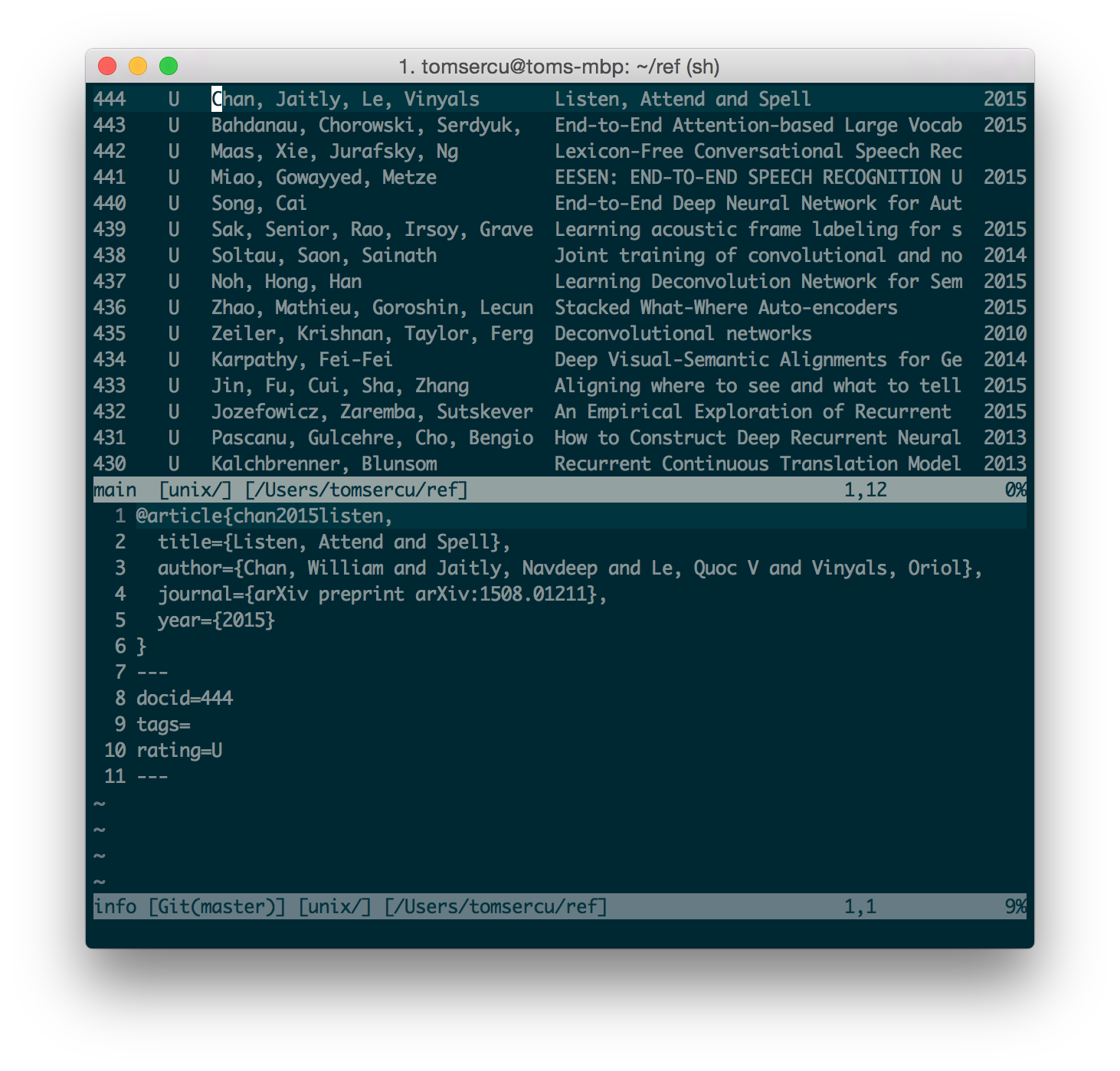Ref is a lightweight command-line reference manager. It is built on python and vim.
Ref is released under the terms of the MIT license.
conda create -n ref
conda activate ref
conda install poppler vim ncurses -c conda-forge
git clone git@github.com:jzbontar/ref ref
cd ref
python setup.py develop
Replace the last line with python setup.py install if you don't want to change ref.
You'll need a recent vim, compiled with python support.
On ubuntu the ones in apt-get will do,
on Mac OS X use brew install vim which has python3 bindings.
On Mac OS X you'll also need poppler for the pdftotext command line tool: brew install poppler
git clone https://github.com/jzbontar/ref.git
cd ref
python setup.py install
Set your base_dir and google scholar Cookie in ~/.ref.conf, for example:
{
"base_dir" : "~/Dropbox/ref",
"Cookie" : "<<Obtained from request headers to google scholar, see below>>"
}
The database and pdf's will be saved in base_dir.
Setting your base_dir to a dropbox folder will enable automatic syncing between your Dropbox-enabled computers.
Obtaining the cookie:
- Go to scholar.google.com, search for something
- On the search results, go to settings > Bibliography manager > Show links to import citations into BibTeX
- In chrome, right click on page > Inspect > tab "Network" > click in list of html elements on page "scholar" > default tab "Headers" > section "Request Headers" > field "cookie"
Type "ref" on the command line to see the main screen which is a vim session with two panes, split horizontally.
Move around like usual in vim with hjkl and jump between the panes with ctrl+W+W
:Add rel/path/to/downloaded/pdfwill add the document and fetch the bibtex from google scholar based on the title from the document.:Fetchif the fetched bibtex was wrong, fix the title then type:Fetchto try again.- Search by typing
//keywordwhere the keyword could be an author name or words from the title. - To clear a search just enter
//(i.e. search without any keyword) - You can still use vim's regular search with
/keyword - Exit with
q ctrl+Utoggles the U flag (U for Unread):Deletedeletes document
If you're switching from another reference manager or just a messy folder of pdfs,
you can open a python session, type import ref; ref.init() and ref.import_dir(/path/to/your/messy/folder)
The codebase consists of two files with less than 600LoC, it's easy to change things if needed.
